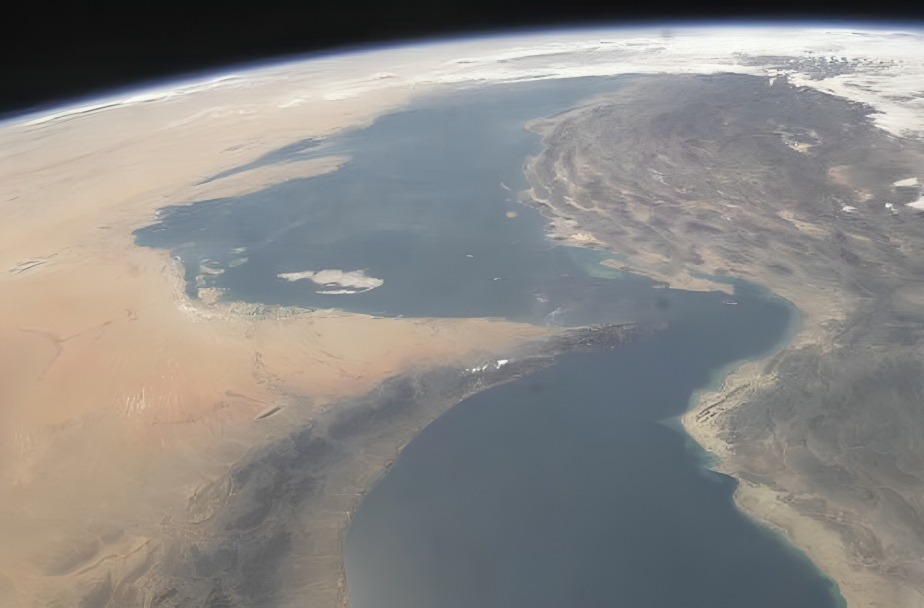Following U.S. airstrikes on three Iranian nuclear facilities, Iran’s Parliament has approved a proposal to close the Strait of Hormuz, a strategic oil transit chokepoint. The decision marks a dangerous escalation in the already tense West Asian geopolitical landscape. For India—heavily reliant on energy imports from the Gulf—the potential blockade of this maritime corridor raises pressing concerns around economic stability, energy security, and regional strategy.
Also Read: Iranian Parliament Approves Measure to Close Strait of Hormuz After U.S. Strikes
What Is the Strait of Hormuz and Why It Matters
The Strait of Hormuz is a narrow maritime passage between Iran and Oman, connecting the Persian Gulf with the Arabian Sea. It is one of the world’s most vital energy corridors, with roughly 20-30% of global oil exports and over one-third of liquefied natural gas (LNG) shipments flowing through it. Any disruption here directly affects energy-hungry economies, especially in Asia.

India’s Energy Dependence on the Gulf
India imports over 80% of its crude oil, and nearly two-thirds of this comes from the Gulf region—including Iraq, Saudi Arabia, the UAE, Kuwait, and Iran. A significant portion of this supply transits via the Strait of Hormuz. For example, Qatar supplies about 39% of India’s LNG imports through long-term contracts. Additionally, petrochemicals, fertilizers like urea, and other energy-linked goods also flow through this route, tying India’s industrial ecosystem closely to Gulf supply chains.
The Economic Fallout
A closure of the Strait would likely send global crude oil prices soaring, putting India under immediate inflationary pressure. The impact would ripple across key sectors—fuel, transport, manufacturing, aviation, and agriculture—raising input costs and straining the fiscal deficit and current account balance. Although India has recently benefited from lower oil prices and built up strategic reserves, a prolonged disruption would test its economic resilience, especially in the wake of post-COVID recovery and global trade uncertainties.
Strategic and Naval Concerns
India maintains a strong naval presence in the Arabian Sea and Gulf of Aden, including mission-based deployments to safeguard energy lanes. The Indian Navy, through operations like Operation Sankalp, ensures maritime security and can evacuate Indian nationals if required. A Strait closure would escalate the complexity of such operations, endanger India’s seaborne trade, and put pressure on naval and diplomatic resources.
Impact on Indian Diaspora and Trade
With over 9 million Indians residing in the Gulf and annual remittances exceeding $40 billion, any instability in the region could affect both economic and humanitarian dimensions. India’s bilateral trade with Gulf Cooperation Council (GCC) countries exceeds $150 billion. Disruptions in maritime logistics would hinder trade flows, affect small and medium exporters, and impact the well-being of Indian expatriates.
India’s Diplomatic Balancing Act
India has traditionally walked a fine line between its ties with Iran, the U.S., Israel, and the Arab world, guided by a policy of strategic autonomy. In past regional conflicts—such as after the 2020 assassination of General Qasem Soleimani—India maintained a neutral position. A similar approach is likely now, with India focusing on silent diplomacy, urging restraint, and working to safeguard its strategic and economic interests without taking sides.
Oil Alternatives and Strategic Buffers
India has made strides in diversifying its oil sources, including increasing imports from West Africa, the U.S., and Russia. Its strategic petroleum reserves (SPR), maintained under the Indian Strategic Petroleum Reserves Ltd. (ISPRL), can sustain the country for several weeks during short-term crises. While the long-term transition to renewables is progressing, fossil fuel dependency remains high, particularly for industrial and transport sectors.
Global Domino Effects and Indo-Pacific Fallout
The Strait of Hormuz’s closure won’t just affect India—it will rattle global markets. Countries like China, Japan, and South Korea, which also rely heavily on Gulf energy, would face supply shocks. Rising maritime insurance premiums, shipping delays, and higher logistics costs would compound problems, affecting global supply chains and posing broader risks across the Indo-Pacific strategic architecture.
Conclusion
India may not be directly involved in the US-Iran conflict, but a closure of the Strait of Hormuz would severely impact its energy lifelines, economic stability, and strategic calculus. This moment reinforces the urgency for India to:
- Strengthen its strategic petroleum reserves
- Accelerate its energy diversification and green transition
- Deepen regional cooperation on maritime security
- Uphold balanced diplomacy amid intensifying global rivalries
Also Read: India Assures Fuel Supply Stability Amid Iran’s Strait of Hormuz Closure Threat
As the Gulf simmers, India must prepare not just for today’s crisis, but for long-term resilience in a world where energy and geopolitics are increasingly intertwined.













